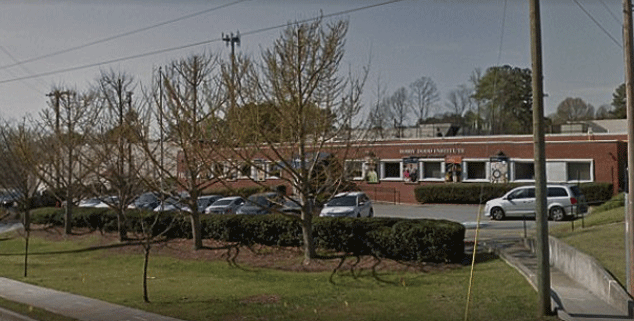
Lumpectomy vs Mastectomy: When you are diagnosed with breast cancer, it is like a kick in the stomach. It is natural to be scared, overwhelmed or confused by everything that comes at you. It is important for you to remember that you are not the only one: breast cancer is highly prevalent (1 in 8 women in the U.S will be diagnosed with the disease in her lifetime), and thousands of breast cancer survivors have just walked this path before you. An example is, you might be having doubts about surgery options such as lumpetomy vs mastectomy and which one will most likely be the best option to you. There is nothing wrong with having questions and also having time to be ready this guide will explain some of the things that are involved in each surgery and how they are different.
In this post, we’ll cover:
- The differences between lumpetomy and mastectomy (which one is included in each operation).
- Advantages and disadvantages of each choice and their implication on appearance and life.
- Survival and recurrence: the research indicates that lumpectomy (with radiation) and mastectomy are same in terms of their long-term results.
- Healing and side effects: the possible difference in healing and lifestyle based on the type of surgery performed.
- Things to consider: personal and medical reasons that will assist you in making the decision that is right to you.
We want to provide you with clear and understanding information, which is compassionate in order to make you feel supported and informed. At the conclusion of this article, you will be in a better position to understand both lumpectomy and mastectomy; their differences, their advantages and disadvantages as well as expectations so that you can make the right decision that suits you and your future.
Difference Between lumpectomy vs mastectomy
- Tissue removed: Lumpectomy excises just the tumor and a small margin of normal breast, so most of the breast remains. Mastectomy removes the entire breast, often including the nipple and areola. (Some mastectomies spare the skin or nipple to aid reconstruction.)
- Hospital stay: Lumpectomy is usually an outpatient procedure, most women go home the same day. Mastectomy is more extensive and generally requires at least one overnight hospital stay.
- Radiation therapy: Lumpectomy always requires follow-up radiation (typically daily sessions for ~5–7 weeks) to kill any remaining cancer cells. Mastectomy may let you skip radiation – many mastectomy patients (especially with small, early tumors) do not need radiation afterwards. If a lumpectomy patient cannot receive radiation (due to distance or health reasons), a mastectomy is usually preferred.
- Recovery and impact: Lumpectomy is less invasive and leaves the breast mostly intact. You’ll have a scar at the tumor site, but the overall breast shape is preserved. Mastectomy removes the whole breast, which dramatically alters chest appearance. (Women often choose breast reconstruction with implants or tissue flaps to rebuild the breast mound after mastectomy.
Lumpectomy vs Mastectomy: Survival Rate
Multiple studies show long-term survival is essentially the same whether you have lumpectomy (plus radiation) or mastectomy for early-stage cancer. In fact, Dr. Tari King (chief of breast surgery at Dana-Farber Brigham Cancer Center) emphasizes that “breast cancer recurrence is not impacted by the type of surgery. It’s the whole treatment package that matters”. Large trials have confirmed this: for example, a 20-year follow-up found no significant difference in overall survival between breast-conserving therapy and mastectomy.
In one study, 20-year survival was about 44.5% with mastectomy vs 39.1% with lumpectomy + radiation (a non-significant difference). Likewise, in non-invasive (DCIS) cases, 10-year breast-cancer survival was ~98–99% for lumpectomy + RT vs mastectomy.
- Local recurrence: Lumpectomy + RT has a slightly higher risk of cancer coming back in the same breast compared to mastectomy. Huntsman Cancer Center surgeon Dr. Cindy Matsen notes that 10–15 year chest-wall recurrence after mastectomy is only about 1–3%, versus roughly 5–7% after lumpectomy + RT. Even so, both rates are low, and additional treatments (like surgery or radiation) can address local recurrences.
- Distant (metastatic) recurrence: The chance of cancer spreading elsewhere in the body is the same with either surgery. In other words, mastectomy does not reduce the risk of distant recurrence beyond what lumpectomy with radiation achieves.
Expert insight: Dr. King points out that modern systemic therapies (chemotherapy, hormone/ her2 drugs) have made local recurrence rates “exceedingly low… the risk is very low and is the same whether I remove the breast or conserve it”. In other words, survival and spread depend more on tumor biology and adjuvant treatments than on surgery type.
Lumpectomy vs Mastectomy Recovery

Recovery differs significantly between these surgeries:
- Hospital stay: Most lumpectomy patients leave the hospital the same day. Mastectomy patients usually stay 1–2 days for monitoring and wound care.
- Time off work/activities: After a lumpectomy (with sentinel-node biopsy), many women resume normal activities in 5–10 days. After a mastectomy, it typically takes 3–4 weeks (and up to 6–8 weeks if reconstruction was done) before you feel like yourself again.
- Physical side effects: Both surgeries cause soreness in the chest, arm, and shoulder (especially if lymph nodes are removed). Mastectomy is more invasive and often involves surgical drains, so pain, swelling or fatigue tend to be greater.
- Radiation: All lumpectomy patients require radiation therapy after surgery. This means daily trips to a treatment center for several weeks. In contrast, many mastectomy patients avoid radiation entirely, though some may still need it depending on tumor size or node involvement. (Discuss with your doctor whether radiation is likely after each option.)
- Other treatments: Importantly, the choice of surgery does not change whether you need chemotherapy, hormone therapy or targeted drugs. Those decisions are based on the cancer’s stage and biology, not the type of surgery.
- Advantages and disadvantages of Lumpectomy and Mastectomy
Lumpectomy (Breast-Conserving Surgery)
- Pros: You retain the majority of your breast, nipple, as well as the chest. The nipple sensation and skin sensation is generally intact and breast-feeding can still be done. It is a quick (usually less than an hour) surgery and a quick recovery- the majority of women discharge on the same day.
- Cons: Requires a course of radiation therapy, which can have side effects and requires weeks of treatment. The shape of the breast may change (dimples or asymmetry) after tissue removal. Sometimes cancer cells are found at the margin, necessitating a second surgery. Lumpectomy is generally not an option if you cannot have radiation, have multiple tumor sites, or previously had chest radiation. It’s also less suitable for inflammatory breast cancer or for women with high-risk genetic mutations (BRCA1/2, etc.) that greatly increase the chance of new tumors.
Mastectomy
- Pros: Removes nearly all breast tissue, lowering (to near zero) the chance of a cancer recurrence in the breast. Many women can skip radiation after mastectomy (radiation is only needed if nodes are positive or other risk factors exist). Mastectomy is often recommended if you carry a high-risk gene mutation or have very extensive disease. For some women, having a mastectomy provides peace of mind – knowing all breast tissue is gone. And if you do not plan reconstruction, you usually avoid any future breast surgeries.
- Cons: Major surgery with a longer, harder recovery. You will lose your breast and nipple, which can impact body image and sensation. (Breast reconstruction is an option, but it means more surgery down the road.) Mastectomy has higher risks of complications like infection or lymphedema (arm swelling). Most patients lose all feeling in the chest skin and nipple after mastectomy, which can affect quality of life.
Figure: A plastic surgeon holds a silicone breast implant, illustrating one option for breast reconstruction after mastectomy. Breast Reconstruction: Many women choose to rebuild the breast shape after mastectomy using implants or tissue flapshealthcare.utah.edu. Reconstruction can improve appearance and body image, but it involves additional surgery and recovery. Note that implants or flap surgeries restore the shape of a breast but cannot recreate natural sensation or milk productionhealthcare.utah.edu.
Other Breast Cancer Surgery Options
Besides standard lumpectomy and mastectomy, there are variations and related procedures:
- Mastectomy types: In addition to total (simple) mastectomy, surgeons may perform a skin-sparing or nipple-sparing mastectomy, which preserves more of the breast skin or the nipple-areola complex for cosmetic benefit. A modified radical mastectomy removes the breast plus many lymph nodes under the arm (axilla).
- Contralateral prophylactic mastectomy: Some women at very high risk (e.g. strong family history or BRCA mutation) choose to remove the opposite healthy breast along with the cancerous one. This doubles the mastectomy, but data show it generally does not improve overall survival for average-risk patients. (It may be considered in specific high-risk cases.)
- Sentinel node biopsy: Nearly all patients will have evaluation of the underarm lymph nodes to check for spread. Doctors usually combine a lumpectomy or mastectomy with a sentinel lymph node biopsy (removing 1–3 nodes). If those nodes are clear, no further surgery is required; if they’re positive, doctors may remove or treat additional nodes. Lymph node removal, even if only sentinel nodes, carries a small risk of arm swelling (lymphedema) for both lumpectomy and mastectomy patients.
- Neoadjuvant therapy: For larger tumors, doctors sometimes give chemotherapy or hormonal therapy before surgery to shrink the tumor, making a lumpectomy possible instead of a mastectomy.
Ultimately, you and your doctor will decide based on your cancer stage, tumor biology, genetics, medical history, and personal preferences. As Susan G. Komen advises, “If you have a choice, study your options. Weigh the risks and benefits of each surgery and choose the one that’s right for you”.
Remember that in most early cases, lumpectomy + radiation and mastectomy offer equivalent survival. Which is “right” depends on factors like tumor size (e.g. lumpectomy usually only for smaller tumors), need for radiation, genetics, and how you balance peace-of-mind versus preserving your body.
Talk with your healthcare team: No blog can replace a personalized medical consultation. Discuss candidly with your surgeon and oncologist. They can explain whether you are a candidate for breast-conserving surgery and help you understand outcomes. As one expert notes, “getting a mastectomy vs lumpectomy with radiation does not reduce the risk [of recurrence], nor does it improve survival… it’s the whole package of treatment that matters”.
Make sure you are comfortable with the plan – and don’t hesitate to get a second opinion if you’re uncertain. You should base your treatment choice on the latest data, your doctor’s guidance, and your own priorities.
Conclusion
For early-stage breast cancer, lumpectomy (with radiation) and mastectomy offer similarly high success rates. Decades of research have shown that women treated with lumpectomy plus radiation have essentially the same long-term survival as those having mastectomy. In other words, neither surgery “wins” on survival – both dramatically reduce the risk of dying from breast cancer by the same amount.
Each option offers different trade-offs: a lumpectomy preserves most of the breast and usually enables a quicker recovery, while a mastectomy involves more extensive surgery (often requiring an overnight hospital stay) but may give some women extra peace of mind since it removes the entire breast.
Lumpectomy does carry a slightly higher chance of the cancer coming back in the same breast, but any local recurrence is typically treatable and does not change the fact that distant (metastatic) outcomes are the same between the two approaches.
Ultimately, the right choice depends on your unique situation. Your care team will consider many factors – tumor size and location, genetic test results, your health and age, access to follow-up radiation, and most importantly your personal feelings and goals – when advising one option over the other.
Be free to discuss with your surgeons and oncologists: inquire about risks and benefits in your case, and there is nothing wrong with seeking a second opinion. Lumpectomy and mastectomy are both acceptable forms of treatment. By staying informed and working with your breast cancer care team, you can make the right decision.
Call-to-Action
We understand that this is an overwhelming time. At our clinic, we are here to support you every step of the way. Our experienced breast cancer specialists will take the time to explain all of your surgical options and what they mean for you. We invite you to contact us to discuss your diagnosis and treatment goals.
Whether you need more information about lumpectomy versus mastectomy, have questions about reconstruction, or want a personalized care plan, our team is ready to help. We will hear you, respond to your questions in an empathetic manner, and we will create a treatment plan mounting on your needs. We prioritize your comfort and confidence above all else and are proud to be part of your care team.
FAQs
- 1. Is lumpectomy safer than mastectomy?
Both are equally safe with similar survival rates. Lumpectomy keeps most of the breast but has a slightly higher chance of local recurrence. - 2. Can I choose mastectomy if lumpectomy is possible?
Yes. Both options offer the same survival. The choice depends on your comfort, recovery preference, and peace of mind. - 3. Do I need radiation after surgery?
Usually after lumpectomy, yes. After a mastectomy, doctors recommend it only if the cancer spreads to lymph nodes or the tumor is large.
4. How does each affect emotions?
Mastectomy may impact body image more, while lumpectomy preserves appearance. Support groups can help recovery. - 5. Which surgery has faster recovery?
Lumpectomy heals in days; mastectomy may take weeks, especially with reconstruction.




